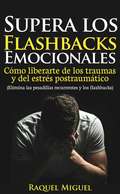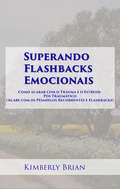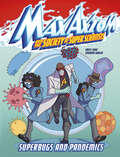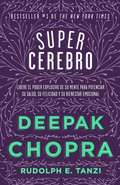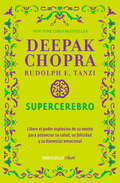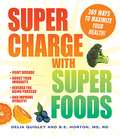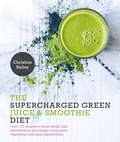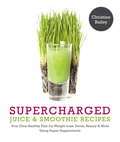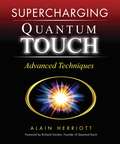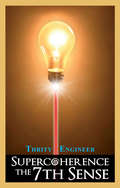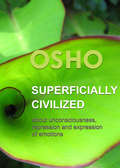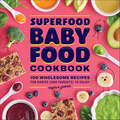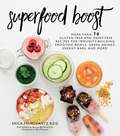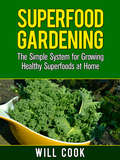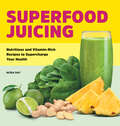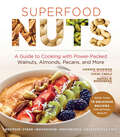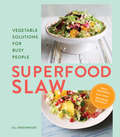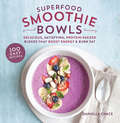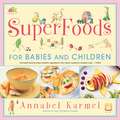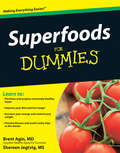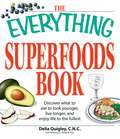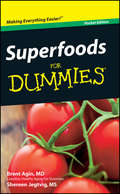- Table View
- List View
Supera los flashbacks emocionales: Cómo liberarte de los traumas y del estrés postraumático
by Kimberly Brian¿Tú o uno de tus seres queridos está tan estresado que sufre flashbacks, pesadillas, ansiedad, preocupación, etcétera, debido a una experiencia traumática? Esta guía te dará consuelo y te proporcionará pasos y estrategias para acabar para siempre con los recuerdos dolorosos, las pesadillas recurrentes, el insomnio y otros signos y síntomas relacionados con el trastorno de estrés postraumático (TEPT). Esta guía incluye también algunos métodos y tratamientos que te ayudarán a mejorar tus sentimientos personales e iniciar el viaje hacia la recuperación total. Esto es algo de lo que aprenderás en este libro: Cómo afecta el TEPT a tu cerebro Cuáles son los signos y síntomas del TEPT Cómo respirar correctamente Cómo ayudar a los veteranos de guerra que sufren TEPT Cómo acabar con el TEPT por ti mismo ¡Y mucho más!
Superando Flashbacks Emocionais: Como acabar com o Trauma e o Estresse Pós Traumático
by Kimberly BrianVocê ou um ente querido está estressado a ponto de ter flashbacks, pesadelos, crises de ansiedade, preocupações constantes etc. por causa de uma experiência traumática? Este guia irá fornecer alívio e estratégias passo a passo de como diminuir para sempre lembranças dolorosas, pesadelos recorrentes, insônia e outros sinais e sintomas associados ao TEPT que você por ventura esteja experimentando. Estão incluídos também neste guia alguns tratamentos e métodos efetivos e comprovados que irão ajudar você a se olhar de modo diferente, mudar suas emoções e começar a sua jornada rumo à recuperação completa. Um pouco do que você aprenderá neste livro: Como o TEPT afeta o seu cérebro Sinais e sintomas do TEPT Como cuidar da sua respiração Como ajudar veteranos com TEPT Como evitar as crises de TEPT (PAP) E muito mais!
Superando el Cáncer de Colon
by David Arieta Galván Tim DarvellEn abril del 2012 la temida palabra cáncer llegó a nuestra familia. Estuve sentado un minuto con mi madre esperando una alta normal del hospital, y luego en un parpadeo nuestro mundo estaba de cabeza cuando nos dijeron que mamá tenía cáncer de colon. Este libro contará con fotos sobre diversos temas, ideas y aspectos técnicos. Este es un libro de caridad con una colección de fotografías y las historias detrás de ellas para recaudar fondos para la organización "Superando el Cáncer de Colon", Todo lo recaudado se donará a la caridad.
Superbugs and Pandemics: A Max Axiom Super Scientist Adventure (Max Axiom and the Society of Super Scientists)
by Emily SohnA new disease has reared its ugly head. People are getting very sick with high fevers and an itchy rash. Even worse, it seems to be spreading quickly to several major cities around the world. What is this new disease, and why is it spreading so fast? It’s up to Max Axiom and the Society of Super Scientists to find out! In this nonfiction graphic novel, young readers can follow the team as they go on an exciting, fact-filled adventure to learn how diseases work, why pandemics and superbugs are so dangerous, and things they can do to help stop the spread of deadly disease.
Supercerebro
by Deepak ChopraEste revolucionario y novedoso manual le mostrará cómo usar su cerebro como portal hacia la salud, la felicidad y el crecimiento espiritual. En contraste con el cerebro estándar, que sólo desempeña tareas cotidianas, Chopra y Tanzi proponen que el cerebro puede aprender a superar sus limitaciones actuales. Supercerebro le explica cómo hacerlo a través de los descubrimientos científicos de vanguardia y la percepción espiritual, del derrumbamiento de los cinco mitos más comunes sobre el cerebro que limitan su potencial y de la implementación de métodos para: Usar su cerebro, en vez de permitir que él lo use a usted. Desarrollar el estilo de vida ideal para tener un cerebro saludable. Reducir los riesgos del envejecimiento. Fomentar la felicidad y el bienestar por medio de la conexión entre mente y cuerpo. Acceder al cerebro iluminado, que es el portal para la libertad y la dicha. Sobreponerse a los retos más comunes, como la pérdida de memoria, la depresión,la ansiedad y la obesidad. Su cerebro es capaz de sanar de forma extraordinaria y de reconfigurarse de forma constante. Si establece una nueva relación con él, transformará su vida. En Supercerebro, Chopra y Tanzi lo guiarán a través de un fascinante viaje que pronostica un salto en la evolución humana. El cerebro no es sólo el don más increíble que nos ha dado la naturaleza, sino que también es el portal para un futuro ilimitado que puede comenzar a vivir hoy mismo.
Supercerebro: Libere el poder explosivo de su mente para potenciar su salud, su felicidad y su
by Deepak ChopraEste revolucionario y novedoso manual le mostrará cómo usar su cerebro como portal hacia la salud, la felicidad y el crecimiento espiritual. En contraste con el cerebro estándar, que sólo desempeña tareas cotidianas, Chopra y Tanzi proponen que el cerebro puede aprender a superar sus limitaciones actuales. Supercerebro le explica cómo hacerlo a través de los descubrimientos científicos de vanguardia y la percepción espiritual, del derrumbamiento de los cinco mitos más comunes sobre el cerebro que limitan su potencial y de la implementación de métodos para: -Usar su cerebro, en vez de permitir que él lo use a usted. -Desarrollar el estilo de vida ideal para tener un cerebro saludable. -Reducir los riesgos del envejecimiento. -Fomentar la felicidad y el bienestar por medio de la conexión entre mente y cuerpo. -Acceder al cerebro iluminado, que es el portal para la libertad y la dicha. -Sobreponerse a los retos más comunes, como la pérdida de memoria, la depresión, la ansiedad y la obesidad. Su cerebro es capaz de sanar de forma extraordinaria y de reconfigurarse de forma constante. Si establece una nueva relación con él, transformará su vida. En Supercerebro, Chopra y Tanzi lo guiarán a través de un fascinante viaje que pronostica un salto en la evolución humana. El cerebro no es sólo el don más increíble que nos ha dado la naturaleza, sino que también es el portal para un futuro ilimitado que puede comenzar a vivir hoy mismo. "Este par de especialistas de talla internacional combina su conocimiento para dar vida, en un elegante texto que nos permitirá mantener la juventud cerebral, a la cautivadora historia de nuestro cerebro." Dr. Mehmet Oz
Supercharge Your Diet: Ten Easy Ways to Get Everything You Need From Your Food
by Sam RiceConfused and overwhelmed by healthy eating advice? What exactly do we need from our food? Eating healthily is easy, right? Just make sure you have your five-a-day (or is it eight-a-day now?) when it comes to fruit and veg. Eat plenty of fibre (but what exactly is it, and how much of it do I need?). Cut down on meat (which types and by how much?), eat more fish (only sustainable, or is farmed OK?), ensure you're getting enough of the right types of vitamins and minerals. Oh, and and don't forget prebiotics and probiotics for gut health . . . We are bombarded on a daily basis by too much confusing (and often misleading) information about what it is that we should be eating to keep ourselves healthy. It's easy to ignore it all and hope for the best, but now you don't have to . . . In Supercharge Your Diet, food and lifestyle writer Sam Rice is here to demystify and simplify nutrition by showing you ten practical and easy-to-understand ways to pack your daily diet full of powerful goodness. Learn with her how to plan, prepare and cook healthy meals and snacks that meet all your nutritional needs. Learn easy ways to:* Eat 30 grams of fibre a day* Incorporate healthy fats into your diet* Eat more lean and plant protein* Get the recommended 5 portions of fruit and veg a day* Increase your vitamin and mineral consumption
Supercharge with Superfoods: 365 Ways to Maximize Your Health!
by B. E. Horton Delia QuigleyLiving healthier and longer is simpler than you may think--when you know your superfoods.With Supercharge with Superfoods, you learn how to derive the most positive benefits from the top twenty-five superfoods. Expert authors Delia Quigley and B.E. Horton, MS, RD, offer 365 tips on incorporating these important foods into your diet, including how to:Eat blueberries to fuel brain powerPrevent cancer with broccoliLower cholesterol with oatsMake skin look youthful with pumpkin productsEat salmon for your heartProtect eyes with spinachBoost your immune system with yogurtEmpowering and educational, this complete and concise guide is your new and improved way to look good and feel great!
Supercharged Green Juice & Smoothie Diet
by Christine BaileyGreen juices and smoothies are the go-to drink of the moment. They are fantastically healthy, packed with vitamins, minerals and phytonutrients. And they're also much better for you in terms of sugar content and balanced energy levels. Christine Bailey takes green juicing to a whole new level. Supercharged Green Juice & Smoothie Diet is an amazing collection of feel-good drinks using the latest range of superfoods to nourish and revitalize your body. Packed with nutrient-rich, health-boosting ingredients, each juice or smoothie contains at least one supercharged ingredient. These boosters include superfood powders such as acai berry powder (one of the most concentrated sources of antioxidants) or collagen powder supplement (brilliant for your skin), sea vegetables, seeds, bee products, berries, herbs and tinctures.Use the handy reference section at the back to quickly find recipes that will help you to lose weight, maximize energy levels, boost the immune system, combat ageing and look amazing. There is also a 2-day power-charged Superfood Juice Diet plan to set you on your way to looking fabulous as well as feeling great. Nutritionist and best-selling author Christine Bailey shows you how easy it is to make daily juices and smoothies, and explains the benefits of using green juices and supercharged ingredients for extra weight-loss and health-giving properties.From the Trade Paperback edition.
Supercharged Juice & Smoothie Recipes
by Christine BaileyLooking for a simple way to boost your energy levels, improve your health, lose weight and feel fantastic? Supercharged Juice & Smoothie Recipes is an amazing collection of feel-good drinks using the latest range of superfoods to nourish and revitalize your body. Taking juicing to a whole new level with nutrient-packed, health-boosting ingredients, Bailey uses an array of ingredients including sea vegetables, herbs, teas, and tinctures to help you supercharge your juice regimen. Using extra boosters in juices and smoothies is a simple, effective way to get your body into shape fast, providing fuel and nutrients for a transformed body and mind. Bailey (author of The Juice Diet) also provides a handy reference section at the back to help you quickly find recipes to lose weight, maximize energy levels, boost your immunity, combat aging and look amazing. There is evan a 3-day power-charged Superfood Juice Diet Plan to set you on your way to looking fabulous as well as feeling great.
Supercharging Quantum-Touch: Advanced Techniques
by Richard Gordon Alain HerriottQuantum-Touch teaches ways to focus and amplify life-force energy (chi) through simple breathing and body awareness exercises. The result stimulates the subject's biological intelligence to do whatever healing it deems necessary in everything from major immune disorders to chronic pain to emotional disturbances. In Supercharging Quantum-Touch, prominent teacher Alain Herriott takes students and followers of Quantum-Touch beyond the basics, sharing the techniques used by the best, most effective practitioners.From the hundreds of workshops he's conducted around the world, Herriott has gathered questions that he addresses here in a direct way that refines, clarifies, broadens, and deepens the work. The book begins by walking readers through the basic attributes of the best practitioners. Bit by bit, more techniques are added and "stacked" or laid out to create a step-by-step approach to work on anything a client needs, including (though not limited to) general pain, physical imbalances, and emotional issues. Strategies for perceiving energy more clearly are also included. Written in a very accessible style, Supercharging Quantum-Touch gives readers the confidence they need to work in this increasingly popular--and important--healing art.
Supercoherence: The 7th Sense
by Thrity EngineerThe seventh sense operates outside the boundaries of the rational mind, the intuition, emotions, the five sensory reality and bypasses the brain. It is the realm of total knowledge and super function that exists in each human on a separate largely inaccessible parallel track, until NOW. As a result of an extraordinary breakthrough, for the first time this master key is available to any human. The master code of Human Super function has been decoded and radical new possibilities emerge for the expansion of human consciousness and an exponential enhancement of human creativity. The keyword for success and happiness in this troubled, complex yet wondrous 21st century will be Supercoherence. We are back in the Age of Wonder – are you ready for the adventure?
Superficially Civilized
by Osho Osho International FoundationOsho describes humanity as "superficially civilized'. Underneath of our so-called civilization we are still animals but our cultures cannot accept this fact.This Osho talk is about about unconsciousness, repression and expression of emotions. In responding to two personal questions Osho describes unconsciousness as the basement of our minds in which many things are buried which find expression through your conscious. Like, millions of people watch boxing or football matches and their enjoyment is the expression of hidden violence.
Superfood Baby Food Cookbook: 100 Wholesome Recipes for Babies (and Parents) to Enjoy
by Nicole JurickFrom first foods to family meals, discover 100 kid-friendly superfood recipes Set your little one up for a lifetime of healthy eating. This collection of tasty, nutrient-rich baby food recipes is designed to appeal to your child and expand their palate at every stage of their development. With the Superfood Baby Food Cookbook, you can ensure every bite helps them grow up happy and strong as they learn to love nutritious superfoods.This baby food cookbook features:Baby food basics—Learn all about what superfoods are, which ones are best for your baby, how to store baby food to reduce waste, and much more.Strategies for success—Discover tips for getting babies to try new foods, introducing common allergens, and starting out with baby-led weaning.Easy-to-reference recipes—Easily find the perfect foods for your little one using recipes that are broken out by stage and ingredient type.Teach your little one to love eating healthy with this superfood-focused baby cookbook.
Superfood Boost: Immunity-Building Smoothie Bowls, Green Drinks, Energy Bars, and More!
by Erica Palmcrantz AzizNo refined sugar. No dairy products. No gluten. Just healthy, energizing superfoods! Superfood Boost inspires and teaches you to start planning simple and quick dishes to improve your well-being. Developing better habits doesn't have to be difficult or time-consuming. Just replace your snacks with nutrient-rich smoothies and energy bars, and you'll see your health improve in no time at all! Simply put, food is medicine, and superfoods contain maximum nutrition in every serving, giving your body a healthy boost. With this book, you will learn which ingredients to choose to make the most out of your snacks and meals—and they can all be found in a supermarket near you! All of the recipes are based on raw food ingredients and help you get the most nutrition in the best possible way. Check out: Perfect Matcha Latte Blueberry Smoothie Bowl Strawberry Coconut Smoothie Bowl Cranberry-Coconut Overnight Oats Chili-Cocoa Overnight Oats Coconut–Goji Berry Smoothie Green Smoothie with Almond Milk Two-Minute Carrot Soup Zoodles with Sundried Tomatoes and Pumpkin Seeds Chia Seed Chips with Turmeric Guacamole Blueberry-Prune Fruit Leather Pumpkin-Sesame Protein Bar Cherry Energy Bars Superfood Truffles Dark Chocolate Puffs Avocado Ice Cream These simple and fast recipes will make you happy, healthy, and ready for anything. To top it all off, you'll have a calmer stomach and balanced blood sugar levels, you'll be full between meals, and your immune system will be stronger than ever!
Superfood Gardening: The Simple System for Growing Healthy Superfoods at Home
by Will CookGrow your own bountiful harvest of super-healthy, super-delicious produce with this illustrated gardening guide.Superfoods are a key ingredient for a healthy lifestyle. They are an excellent, low-calorie source of essential nutrients believed to prevent cancer and heart disease. And there’s no better way to get fresh, organic superfoods than to grow them yourself! Whether you have a tiny yard or plenty of space, starting your own superfood garden is easy with the time-tested techniques in this step-by-step guide. Urban gardening expert Will Cook explains everything from planting and fertilizing to proper watering and plant maintenance.
Superfood Juices, Smoothies & Drinks: Advice and Recipes to Lose Weight, Prevent Illness, and Improve Your Emotional and Physical Health
by Jason Manheim Leo Quijano IIIn his previous book, The Healthy Green Drink Diet, Jason Manheim established that one juice or smoothie a day-made from green vegetables such as kale, cucumber, celery, and spinach-works wonders for organ health, immune system strength, and weight loss. Now, Manheim takes these drinks to the next level by offering recipes to help you introduce healthy drinks made with superfoods into your daily diet.Superfoods include apples, bananas, avocados, cherries, chia seeds, dark chocolate, carrots, green tea, hot peppers, kiwis, mangoes, nuts and oats, lemons and limes, peaches, spinach, Swiss chard, and many more foods that you can easily grab at your neighborhood grocery store. In Superfood Juices, Smoothies, and Drinks, Manheim explains why superfoods are good for your overall health and then offers ways to incorporate them into the beverages you drink all day long.Incorporating superfoods into the following types of drinks will help you lose weight, stay focused, and get energized:JuicesSmoothiesCoffeesTeasInfused watersCidersProbiotic drinksAnd more!
Superfood Juicing: Nutritious and Vitamin-Rich Recipes to Supercharge Your Health
by Nora DaySupercharge your health with 100 superfood juicing recipes Juicing superfoods is an easy and delicious way to add more nutrients to your diet for greater health and overall well-being. This juicing book is filled with tasty recipes that make it simple to incorporate foods like turmeric, kale, and flax seeds into your daily routine so you can feel and function your best. Superfood juicing for beginners—Jump into an overview of what superfoods are, the different types of juicers, and how to combine different superfoods to get the most health benefits from each one. Blends for wellness—Explore recipes organized by their health perks—from eye-opening morning blends to detox juices—with helpful labels for additional benefits like skin clarity, heart health, and anti-inflammation. Simple recipes—Discover recipes that typically contain six or fewer easy-to-find ingredients, with detailed nutritional information and handy tips for swapping ingredients to switch up flavors. Infuse every day with the power of superfoods—this juicing recipe book shows you how.
Superfood Nuts: A Guide to Cooking with Power-Packed Walnuts, Almonds, Pecans, and More (Superfoods for Life)
by Connie Diekman Vicki ChelfA comprehensive guide to one of the most powerful super foods nature ever created: nuts. Nuts are nutritionally dense and packed with omega-7 fatty acids, cancer-fighting fiber, and satiating protein—and they're delicious, too! Superfood Nuts is an authoritative guide to walnuts, almonds, pecans, cashews, macadamias, pistachios, and more. Featuring over 75 mouthwatering recipes, fascinating facts, and practical tips for including nuts in your diet, all presented in an easy-to-read style by a nutritionist and a vegan chef, this new entry in the popular Superfoods for Life series is a fantastic resource for anyone who&’s a nut for nuts.Created in consultation with Dr. Daniel Rosenberg, who conducted a groundbreaking study on the effectiveness of walnuts in fighting colon cancer.
Superfood Slaw: Vegetable Solutions for Busy People
by Jill GreenwoodWith Superfood Slaw, it's quick, easy, and inexpensive to chop your way to health. This healthy cookbook features 60 base recipes and 120 tips on how to transform the slaws using tasty toppers—as well as how to morph them into complete meals, including soups, wraps, and bakes.These recipes of nutritionally dense, micro-chopped vegetables can be whizzed up in any food processor (or with a knife and chopping board), making preparation simple and fun for those with busy lifestyles.• Organized by nutritional benefits like immunity, energy, hydration, and recovery• Quick and easy, these healthy superfood and nutrient-dense slaw recipes are great for busy people looking to increase their vegetable intake.• Recipes work with all diets—including vegetarian, vegan, gluten-free, and keto.Superfood Slaw is teeming with rainbow-colored nutritional boosts to empower habits for a healthier diet, boost your energy, improve your immunity, and help you recover after exercise.Get ready to embrace maximum nutrition, variety, value, and taste!• A refreshing, easy, and cheap way to eat healthy• Perfect book for fitness meal preppers, dieters, mason jar salad makers, people who are sick of zoodles, and anyone who loves superfoods• Add it to the collection of books like Inspiralized: Turn Vegetables into Healthy, Creative, Satisfying Meals by Ali Maffucci; The Healthy Smoothie Bible: Lose Weight, Detoxify, Fight Disease, and Live Long by Farnoosh Brock; and Mason Jar Salads and More: 50 Layered Lunches to Grab and Go by Julia Mirabella.
Superfood Smoothie Bowls: Delicious, Satisfying, Protein-Packed Blends that Boost Energy and Burn Fat
by Daniella ChaceWhat if you could eat a vegan, protein-packed meal every day that tasted more like an ice cream sundae than health food? It's possible: these 100 simple recipes for smoothies bowls, topped with fresh chopped fruit, berries, toasted nuts, cocoa powder and so much more will fill you up without busting your diet. Each recipe is dairy-free, gluten-free, low in sugar, and packed with superfoods to keep you focused on your healthy eating goals, without sacrificing the need for something sweet and filling. Eating food that requires chewing triggers the release of cleansing digestive enzymes, according to author Daniella Chace, making smoothie bowls feel more satisfying than their siblings with straws. They are perfect for breakfast, lunch, a snack, or anytime you get a craving for a delicious treat.
Superfoods
by Annabel KarmelBoost your baby's health with Annabel Karmel's delicious recipes and creative advice for feeding your child in the first five years. All parents want the best for their children, but choosing the freshest foods and preparing them in the most beneficial and appealing ways is not always easy. As a mother of three and author of more than twenty books on healthy food for children, Annabel Karmel knows better than anyone not only what children should eat but what children will eat. SuperFoods is both a cookbook and a reference manual that helps parents recognize the nutritional value in even the simplest foods. In addition to a variety of tempting recipes and invaluable advice, SuperFoods includes: - More than 130 easy recipes suitable for children of all ages--from the best first foods to balanced family meals.- Menu charts to help you plan ahead--most recipes are suitable for freezing.- Information on how to avoid food allergies and common childhood complaints such as colic, constipation, and eczema.- Suggestions for healthy convenience foods to keep in the pantry.- Tasty recipes that harness the power of SuperFoods to promote growth and energy and boost immunity and brain power.And much, much more!
Superfoods
by Dr Brent Agin Shereen JegtvigTransform your diet and reap the extraordinary benefits of superfoods Want to eat healthier, lose weight, and fight off disease? You can do it with superfoods! This friendly guide explains everything you need to know - why you need superfoods, the science behind them, and how to prepare and enjoy them. From bananas and carrots to oatmeal and salmon, you'll gain a healthy attitude toward eating right! Get the skinny on superfoods - know the basics of a balanced, nutritional diet, and why superfoods are so powerful Take a closer look - examine the unique properties of superfoods and the best ways to store and prepare them Explore exotic flavors - discover Asia's goji berries, Mexico's chia, Indonesia's mangosteen, and other unusual superfoods Launch your superfoods lifestyle - plan healthy meals you and your family will enjoy Open the book and find: A nuts-and-bolts breakdown of each superfood Ways to incorporate superfoods into your everyday diet Tips for saving money on superfoods The healthiest cooking methods More than 50 easy-to-prepare, tasty recipes - from breakfast to dessert The top dietary supplements How to grow your own superfoods garden
Superfoods Book (The Everything®)
by Delia Quigley Brierley E WrightCommon foods like blueberries, broccoli, tea, walnuts, yogurt, soy, and salmon are just some of the nutrient-rich foods that can help people live longer, look younger, and feel healthier. This book breaks down the secrets of the top twenty superfoods and how they can be instrumental in transforming the body.Readers will learn key nutritional information on the following topics:blueberries can fuel brain powbroccoli prevents canceroats can lower cholesterolpumpkin helps skin look more youthfulsalmon turns back time in the heartspinach protects the eyesyogurt boosts the immune system. Along with fifty recipes to jumpstart their use in a daily diet, this book makes it easy to find that elusive fountain of youth!
Superfoods For Dummies, Pocket Edition
by Shereen Jegtvig Brent AginTake control with superfoods! Want to eat healthier, lose weight, and fight off disease? Superfoods can help you do it! This handy pocket guide helps you understand why you need superfoods, the science behind them, and how to prepare and enjoy them. From fruits to fish, you'll get started eating right! Open the book and find: Ways to transform your diet Easy and delicious superfood recipes How to prepare extremely healthy foods Why each superfood is super Ways to control your weight with superfoods
